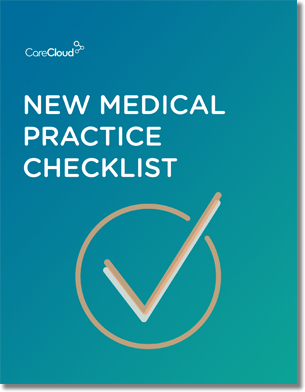Choosing the right electronic health record (EHR) system involves asking a slew of questions. Should we go with a cloud-based or a client-server solution? Does my practice really need a patient portal? Will this EHR help me attest to Meaningful Use?
These are all standard questions providers should be asking potential vendors during the selection process. But behavioral health (BH) providers have to dig even deeper because of their unique set of needs.
So before plunging headfirst into a new digital charting solution, BH specialists need to make sure a prospective system has the functionality they’ll need to improve patient outcomes.
Today, Behavioral Health EHR Advocate Kristin S. Walker addresses the EHR questions behavioral health providers need to be answered. Walker is the owner of everything EHR, a behavioral health provider advocacy and consulting firm that helps clients identify the most appropriate EHR system for their practice needs and income level.
Behavioral health providers face unique challenges in managing, treating and tracking outcomes for their patient population. What capabilities should they look for in an EHR to handle these challenges?
For starters, the software should be at least partially browser-based so BH providers can access it at the office or at home. It also needs to work seamlessly on Apple or Windows devices to give staff flexibility.
The software should work off of a dashboard that displays critical information in a summarized, easy-to-use manner. Updates on Meaningful Use criteria and other customizable user reports should be included.
Speaking of Meaningful Use, how are behavioral health providers dealing with the new reporting criteria for Stage 2? Are EHRs simplifying or complicating the process?
EHRs offering expert guidance and education for mental health providers help immensely. Working with an organization like CareCloud, where Meaningful Use Stage 2 certification is nearly complete, speaks to the longevity of the organization.
In most cases, smaller, behavioral health-specific EHRs are actually complicating the process for MU reporting since these EHRs aren’t financially stable enough to afford the development needed to meet requirements. So, a behavioral health provider will waste time and money adopting a system that will prevent them from gaining government incentives.
How can a quality EHR assist behavioral health providers in managing caseloads across episodes of care (mental health, substance abuse, etc.) and treatment plans?
A Drummond-certified EHR will help secure the funding necessary for BHs to enhance their services to meet the demands of multi-specialty mental health practice. Many behavioral health EHRs are tailored for one area of mental health only or require a fair amount of customization in order to handle multi-specialty behavioral health providers. While there is no “one size fits all” EHR, CareCloud Charts certainly comes close.
What role will patient portals play in behavioral health?
Patient portals should be included in the cost of a behavioral health EHR, not as an additional fee. Patient portals are critical for mental health professionals. These specialists are expected to gather more and more statistical information every day – taking up time for which they are not being reimbursed.
These statistics will be audited and reimbursement rates lowered if new reporting requirements are not met. Giving patients the ability to fill out health information via a patient portal improves patient care and empowers mental health patients to be more involved in their care.

Do you know what you need when setting up a new medical practice?



